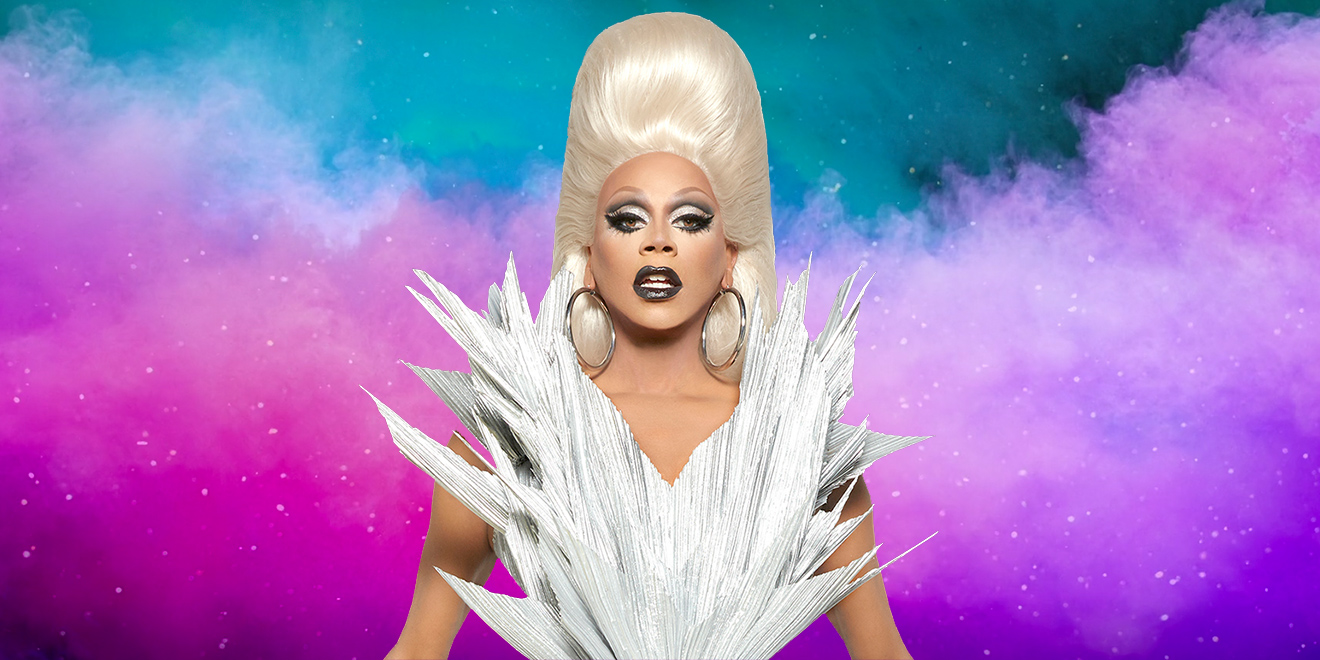“In this world, there is a kind of painful progress.” I’ve long resonated with this line from Part Two of Tony Kushner’s Angels in America. After an epic two-play journey encompassing an odyssey of human struggles, it ends on this hard, yet optimistic thought — that social progress comes hand-in-hand with conflict. I’ve been thinking a lot about this idea since RuPaul’s Guardian interview last week.
In case you missed it, in discussing the place of cis-women, non-binary female-bodies, and trans women in drag (and indeed on RuPaul’s Drag Race), Ru argued that drag is at its best when it’s a men-only sport, and that trans women who have undergone surgery shouldn’t be allowed on his show. He then dug the hole that little bit further with an unthinking tweet, where he likened trans contestants taking hormones to athletes cheating with performance-enhancing steroids. Rightly so, he has come heavily under fire, and has since issued a (kind of) apology. But after a week of cultural conversation, dissection and critique, I think we are seeing progress.
Though Ru’s comments may have been painful to many, the ensuing conversations have shifted wider understandings of drag and gender to a more nuanced place. What the world has learned, undeniably, is that RuPaul cannot be seen as the voice of the drag community. In fact, it would be unnatural for there to be any singular voice of a scene so diverse. One of the biggest issues with The Guardian feature , is it celebrates Ru as unquestionably transgressive, boasting that Drag Race is a “big f**k you to male-dominated culture” (in an interview that says drag is only for men).
The host’s flippant misogyny and transphobia were largely un-critiqued, merely woven into the article, barely raised for debate. Ru also speaks for the drag community with utter assertion, claiming, for instance, “drag loses its sense of danger and its sense of irony once it’s not men doing it, because at its core it’s a social statement and a big f-you to male-dominated culture. So for men to do it, it’s really punk rock, because it’s a real rejection of masculinity.” A deeply frustrating thought — when cis- men perform femininity, it is transgressive, but when cis, non-binary and trans women use drag to perform femininity — and there are many that do — it is not as worthy.
For many Guardian readers, RuPaul is the only drag queen they might know, so his short-sighted opinions have weight. Thankfully, though, he didn’t get away with it. And the resultant backlash has shown people the world over the many wonderful nuances there are in drag. While drag has largely been understood as “men dressing as women”, the response to last week’s feature has shown people otherwise. Just the other day I was on a BBC radio panel discussing the many different kinds of drag, and every major publication has been giving time to the issue on an international scale.
So what, exactly, is the world learning? Well, that drag does not belong to men. As RuPaul’s Drag Race is the mainstream access point to the world of drag, many didn’t know that there are biological females who also use make-up, costume and wigs to deconstruct and parody femininity. Many of London’s most political and established drag queens are “bio-queens” — Victoria Sin, Eppie Conrad, Rubyyy Jones & Edith Pilaf, for example. It is enraging to think that cis gay men feel they have more of a right to parody and play with femininity than those who endure the labour of femininity every day.
Femininity is a social construct that doesn’t belong to women or men, and can be explored by anybody. If drag is all about deconstructing gender, then RuPaul’s comments make him guilty of seeing drag as a completely gender-essentialist activity — “biological men” turning into “fake women.” But if femininity is something artificial, then biological sex shouldn’t have anything to do with performing it — anatomical sex is one thing, performed images and tropes of gender are something completely different.
This kind of biological assessment of who and who can’t be a drag queen was what was so offensive about the comments regarding trans contestant Peppermint . According to RuPaul, if she’d already had breast surgery, she wouldn’t have been allowed on. But following RuPaul’s transphobia, it was encouraging to see the wealth of support from the drag community for the place of trans identities within. Winner of season 9, Sasha Velour tweeted, “my drag was born in a community full of trans women, trans men, and gender non-conforming folks doing drag. That’s the real world of drag, like it or not.” It’s brilliant that contestants of the show have challenged Ru publicly, internationally broadcasting that drag is a nuanced art form that can’t be decided by one man.
While I’m disappointed in Ru, I’m not really surprised this has happened — we can’t allow one man to be the voice of the drag community for the world. It’s not natural, nor is it fair. It’s been a challenging week, but one that has opened the eyes of the world to the many amazing variations of drag, offering space to those that have been silenced within the community for too long.
I’m looking forward to the next chapter, where hopefully Ru will honour his public apology, and where culture will duly represent the voices it has ignored. And the next time there’s a interview in a major publication like the one with Ru, let’s make sure it’s a lot more accurate, and a hell of a lot more inclusive.





